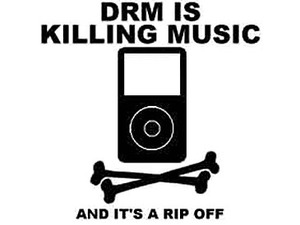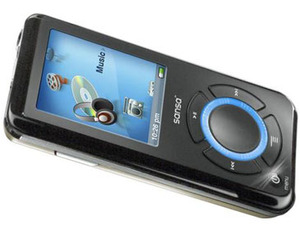"I can't get no satisfaction" - Your Rights
We can't either, Sir Mick.What the DMCA and the 2001-EDC lacked in industry responsibility, they made up in spades for the consumer. Each article is laden with things that you as the end user can and cannot do. The majority of these rulings fall under the term "Fair Use" in the United States and "Fair Dealings" in the EU (and most other countries).
The most important thing to understand about Fair Use is that it simply cannot be revoked. No matter what an EULA or any other document says, Fair Use is not able to be taken away. However, what constitutes fair use is the second most important fact - it is an affirmative defense, or an acknowledgement that you did breach copyright law. You're just saying that nobody was hurt by it and that you had a good reason. Clearly, any attempt to profit from, further distribute, or in any way prevent the copyright holder from getting paid for that work will violate Fair Use. And in order to prevent any heated discussion on it, Fair Use does definitively allow you to make a back-up copy of your purchased media, subject to one exception.
The odd thing about Fair Use is what it doesn't specify - and what both the DMCA and 2001-EDC clearly deny, to remove any doubt. You are not allowed to remove the DRM imposed on a file. Ever. This has actually caused problems in the US, where photographers watermark a print and then a company buys rights to publish the image. Either the photographer has to send a new, unwatermarked version, or the company is in violation of the DMCA. Even if you have legal right to the image (or video, or song), only the copyright holder has the right to remove DRM.
Where this really falls afoul for media consumers is in the format of your file. Perhaps you want to put that DVD on your hard drive? Making a carbon-copy ISO is not illegal in any way. However, using DVD-shrink to cut off the FBI warning is. If you have a music file from iTunes, removing the FairPlay from it so it can play on your Sansa or Zen is also a violation. In fact, even having the tools to do so will put you on the wrong side of the legal line.


Left: A grass-roots banner for the prevention of cruelty to music lovers. Look familiar?
Right: SanDisk's awesome Sansa e260 MP3 player
"I shot the sheriff" - Consumer Advocates
All the peace, love, and harmony of the 60s and 70s seem to be captured in the immortal words of everyone's favourite reggae artist, Bob Marley. His political activism in his homeland and in international policy left lasting impressions on generations of music listeners.Though he's not quite Bob Marley (first of all, he lacks the dreadlocks), Norwegian Jon Lech Johansen knows a lot about being stuck fighting for rights in international policy. Having produced DeCSS at age 15, he found himself stuck in a fierce court battle with the Norwegian police, the MPAA, and the US Government. After prevailing in that court case, "DVD Jon" has gone on to be one of the greatest advocates against DRM technology.
Jon was helped out of his legal wranglings by the Electronic Frontier Foundation, or EFF. The EFF is an American organization that is devoted to the protection of individuals' rights online, where law simply has not caught up with technology. Though it is headquartered in California, the organization has an official presence in many places both in and out of the US, and is not at all afraid to wade into international laws.
Of course, many other forms of consumer-rights "advocacy" exist. There are tremendous grass-roots campaigns against DRM that survive solely on word-of-mouth and angry customers. These groups will often issue boycotts on brands or products that support DRM or copy protection, though tolerance of what constitutes DRM varies from group to group. Then there are those who go rogue, and choose to use piracy as a means of making a political statement.
It is important to note, however, that true consumer-rights advocates are much like true hackers - there is an attitude amongst those who genuinely rally, argue, and fight that those who just copy and steal are nothing more than thieves. This attitude falls right in line with true hackers, who believe that script-kiddies downloading programs and causing trouble have little understanding of what it means to truly hack anything.

MSI MPG Velox 100R Chassis Review
October 14 2021 | 15:04









Want to comment? Please log in.